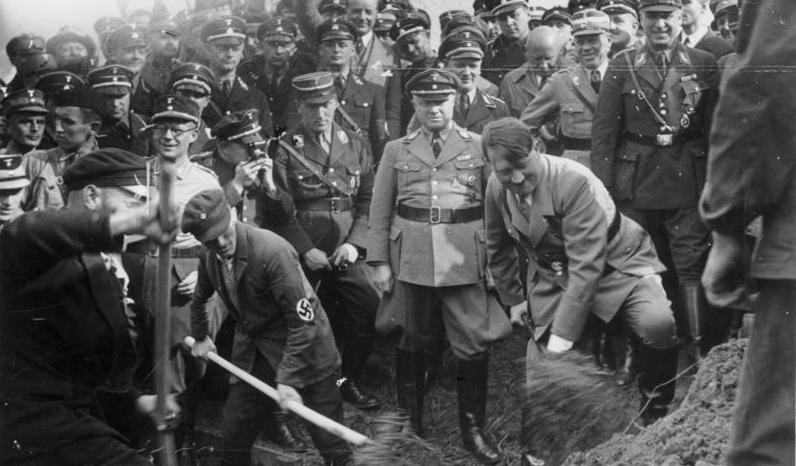
On 11th January 1944 – by which time it was already obvious that Germany would (sooner or later) be defeated by a global alliance of its communist, capitalist and imperialist foes – Britain’s Joint Intelligence Committee met in London.
This was the elite of the Empire’s intelligence services: the heads of naval, military and air intelligence; the head of MI6; and senior representatives from MI5 and the Ministry of Economic Warfare.
The main item on their agenda was a paper from the latter: this Ministry also represented the ‘dirty tricks’ side of the British war effort, the ‘Special Operations Executive’ (SOE).
The paper set out an important objective to be achieved quickly as soon as Germany had been defeated. British intelligence must prioritise obtaining economic intelligence, including:
“how Germany had been able to develop her industrial strength in such a short time after Hitler came to power.”
In other words, eleven years after Adolf Hitler had come to power, the most senior representatives of the British Empire’s intelligence services still didn’t know how he had achieved the Third Reich’s economic miracle, and they were anxious to find out!

The meeting’s secret minutes state that “this information would be of value if we were to remain potentially strong and to have our industry ready for industrial mobilisation for another war.”
They do not of course mean another war with Germany, which would soon be crushed. They mean a ‘Third World War’ with the Soviet Union, and they also imply postwar economic competition with the United States.
The strong implication is that British agents would have to act very swiftly to obtain this economic and scientific data in the ruins of defeated Germany, because we would need to obtain it ahead of our American and Russian ‘allies’.
“Careful preparation would be required to take advantage of our opportunity, which would be fleeting.”
The Third Reich itself was also a “fleeting” moment in European history, but one which demonstrated that national-socialist ideas were and are realistic, not ‘Utopian’.
And the document quoted above shows that the highest level of the British Empire’s intelligence services believed that the Third Reich’s economic and social miracle should be studied and (perhaps) emulated.



